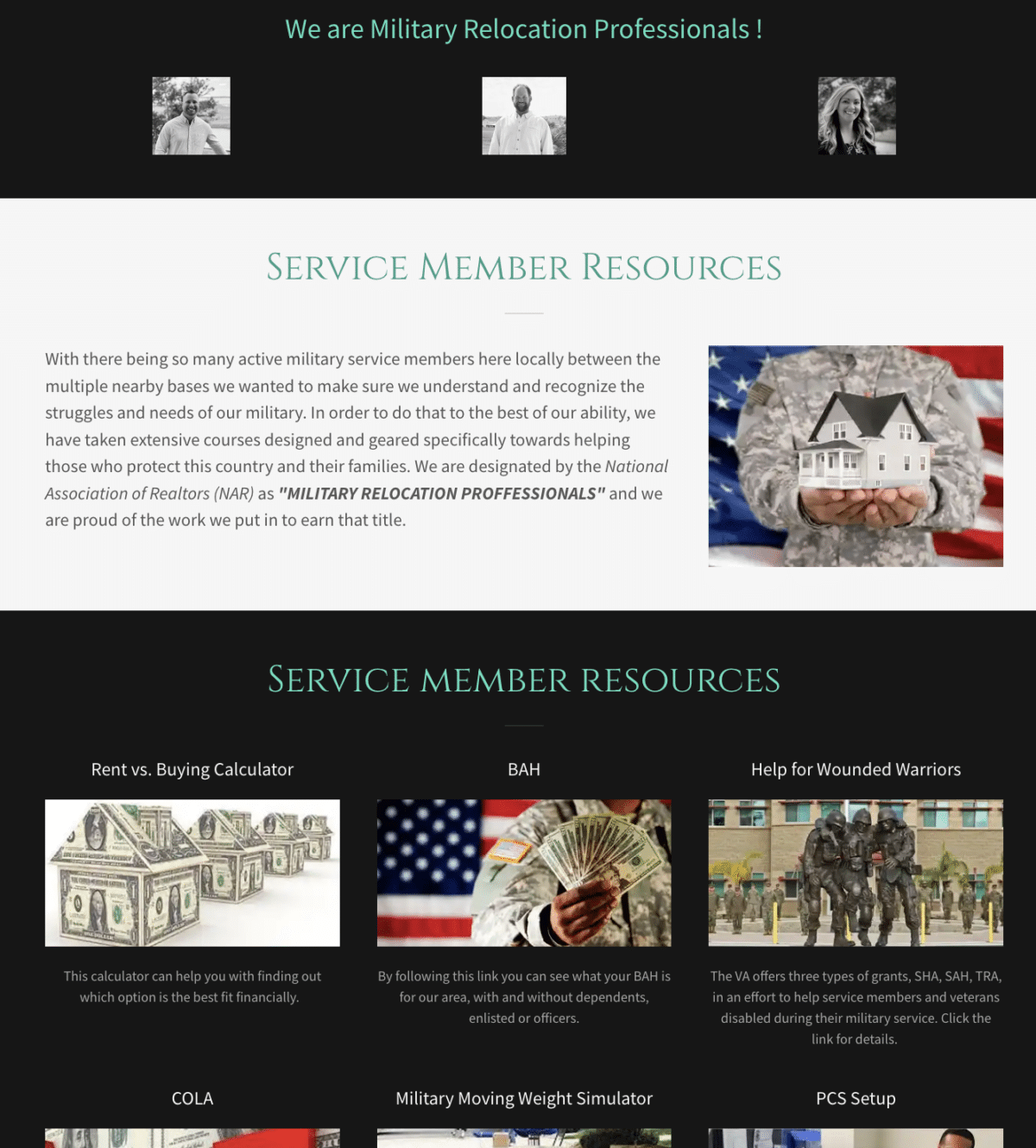Are you interested in helping military personnel find suitable housing and navigating relocation? Becoming a certified military relocation professional (MRP) opens opportunities to assist those serving our country. With this certification, you’ll gain the knowledge and skills to serve military members and their families as they relocate. I’ll explore the ins and outs of being a military relocation professional, its benefits to your real estate career, and the steps required to become a certified military relocation specialist.
What Is a Military Relocation Professional (MRP)?
A military relocation professional is a certified real estate agent who helps current and former military service members find suitable housing. Their specialized knowledge and training in the military home search process make them the best choice for military relocations. Essentially, they are supportive guides, helping their clients navigate the world of military real estate with confidence and reassurance.

Most individuals who work with military personnel have an MRP certification that showcases their expertise in this field. It helps realtors understand how to work with US service members, their families, and veterans to find the best housing solutions and maximize benefits and support.
Benefits & Reasons Why Military Relocation Is an Ideal Niche
Considering the benefits of becoming a realtor military relocation specialist? The Military Relocation Professional (MRP) Certification Course is an approved elective for the Accredited Buyer’s Representative (ABR®) and Seller Representative Specialist (SRS) designations. This role offers a rewarding career serving military families and gaining valuable expertise working with the military community. It can open up new opportunities in your real estate career and allow you to make a meaningful impact.
- Expand knowledge: Understand how military relocation processes and procedures affect service members’ housing choices and learn about the transaction process.
- Provide valuable service and information: Provide valuable information and services to help members decide about renting, buying, selling, or renting out property.
- Learn financing options: Explain the basics of VA financing.
- Military personnel are always on the move: They often must move to new locations because they receive permanent change of station (PCS) orders. They might not have been to these places before, so they need help finding housing from experts.
- Easy financing through VA loans: Another reason is the ease of funding through the Department of Veterans Affairs loans. Zero-interest loans are an even bigger deal in our current lending environment!
- Military personnel have recession-proof jobs: Regardless of the big economic picture, the military won’t be laying anyone off. Those actively serving in the US military have guaranteed roles, many of which require them to travel and relocate regularly.
Steps to Building a Career as a Military Relocation Professional
Now that you have mastered the fundamentals of how to become a relocation specialist, let’s dive into how to kick off your journey of working with service members to see if it’s the right fit for you. Here’s a rundown of the process:
Step 1: Learn the Skills & Requirements to Work With Service Members
Before you get too excited and start packing your bags, you should know the three basics you’ll need to start working as a military relocation specialist:
- You need to live near or relocate close to a military base: Military people move to locations with bases for work. You can’t do military relocations if bases are inaccessible. The biggest bases are Fort Bragg, North Carolina; Fort Cavazos (formerly known as Fort Hood), Texas; and Fort Campbell, Kentucky. There are many smaller bases, too. Use this map from Military.com to locate them.
- You need a solid online presence: An online presence as an MRP is a MUST for working military relocations. You will have difficulty generating military leads if you don’t have a website and strong social media skills.
- You need to be highly organized and work within deadlines: The US military usually pays for a few weeks at a hotel for active-duty service members who are PCSing to a new location. That’s not very long, considering that the escrow process can take up to 45 days in some areas. Therefore, you need to work FAST.
Step 2: Earn an MRP Certification
Curious about how to become a relocation realtor for military personnel? A one-day course is the foundation for the Military Relocation Professional (MRP) certification, available online and in-person to accommodate your hectic schedule. Upon finishing the course, you can apply for realtor MRP certification. Although it is not required, it is highly encouraged.
Be a member in good standing with the NAR. |
|
Complete the Military Relocation Professional (MRP) certification course. |
|
Submit the one-time application fee of $195. |
|
Once certified, real estate agents are included in NAR’s MRP realtor search, making it easier for military buyers and sellers to find them. While the MRP certification is beneficial for working with military clients, it’s not mandatory. A solid online presence and good branding are crucial for attracting military leads, as service members often start their home search online.
Step 3: Use Lead Generation & Marketing Strategies to Attract Military Buyers & Sellers
Marketing to service members is similar to marketing to any buyer or seller. However, there are a few marketing strategies that I’ve found are perfect for generating military leads. Here are my favorite ways to market to military personnel:
Create an Effective Online Presence
While it’s not 100% necessary to have military pictures and pages on a website, military-specific information will help you gain trust and be more relatable. When military buyers and sellers search for help finding a home, they seek agents who understand their unique needs.

Consider implementing these seven strategies to help your website cater effectively to military personnel:
- Providing downloadable guides on military relocation and VA loans.
- Highlighting properties near military bases.
- Writing blog posts on relevant topics like home prices and best neighborhoods.
- Offering virtual property tours.
- Sharing testimonials from military clients.
- Collaborating with military relocation specialists.
- Using interactive maps and area guides.

AgentFire offers a cost-effective platform for agents to customize their online presence with various templates, tools, SEO capabilities, built-in lead generation tools, and easy integration options. It empowers agents to build their own marketing and lead generation system.
Use Targeted Keywords on Your Website
Many buyers use real estate keywords like “homes for sale in Austin,” but military members often use specific terms like “PCS to Oahu” or “homes near Joint Base Lewis McChord.” If you’re creating blogs or web pages for military buyers and sellers, use the targeted keywords below to attract the right audience.
- real estate military relocation specialist
- military move real estate agent
- military real estate expert
- active duty military real estate agent
- VA loan real estate military
- military veteran real estate agents
- military discount real estate
- military real estate investing
- military relocation real estate agent
- real estate agents for military families
- military base real estate
- Oahu military real estate
Share Relevant Info on Social Media
Think of your profile as a small website and share helpful content. If you work with military clients, share information like the amount of traffic, home prices, or the good and bad about buying new houses. Another excellent social media technique is to use essential words to help people find you. Even simple drive-by videos on Instagram could help someone who wants to know about a place.

Host Local Events
Hosting client appreciation parties, community events, or housewarming gatherings provides opportunities to connect with potential clients in the military community. The events allow for casual conversations in fun settings and are often photographed and shared online, giving you greater visibility. Consider using props with your logo, Instagram handle, or name to promote your brand in the photos. You can also do themed events for Veterans Day, Armed Forces Day, Memorial Day, and Military and Military Spouse appreciation months.
Share Client Testimonials & Reviews
Testimonials are a great way to generate new military business. While we may not think anyone reads them, buyers and sellers do. They are our stamp of approval as agents. Once you close transactions with military clients, ask for client testimonials to help build trust and credibility, leading to your next deal.
Step 4: Begin Working With Military Buyers
As with any real estate niche, chances are you will have to start working with buyers until you build up enough experience to become a listing agent. The process of working with military buyers is a little bit different from working with regular buyers. Here is a quick rundown of how the military buyer lead process works:
Contact a Lender Who Has Experience With VA Loans
Even if the client’s PCS move isn’t happening for a few weeks or months, it’s always good to begin the process by contacting a lender who specializes in VA loans. The loan officer will provide preliminary information for the preapproval process to determine which loan product will be the best for your clients and what purchase price to stay at or below.
While not all military buyers take out VA loans, it is one of the most common mortgage loans used by buyers in the military. It’s also a 0% interest loan. How amazing is that?
Educate Them on the Pros & Cons of Buying vs Renting

Many service members are first-time buyers, and others might prefer to rent, but long-term plans often vary. When consulting with new military clients who may be on the fence about buying or renting, educate them on the possibilities.
Since many military buyers use their 0% down VA loan benefit to purchase homes, it generally takes a little longer to build enough equity to cover selling costs (to at least break even). Going over the pros and cons of buying and understanding their motivation to purchase or rent and their plans will unlock information that helps your clients make the right decision.
Take Them on Property Tours (Virtually)
If you are unfamiliar with tech tools to help with showings and sight-unseen transactions, you must learn these when working with military buyers. Here are a few ways to show homes virtually:
- Live streaming vs recorded video: When possible, do both. FaceTime, WhatsApp, and video calls via Facebook Messenger are great for connecting live with your clients while showing the home. However, these live videos disappear, leaving nothing to go back to.
- Record a 10- to 20-minute video: Upload your video walkthrough to Google Photos, Dropbox, or iCloud, then send a link. A video can be played and replayed, so there is a huge benefit to one long video over a bunch of short clips. This will make you stand out for going above and beyond.
- Compile DIY research links: Recommend Google Maps and Google Earth and send links to transportation, shopping, the local police site, and any additional websites or apps that will make long-distance purchases easier for the clients.
Don’t try to censor from afar. It’s much better to find another home than to have an unhappy client once they see the place for the first time. Integrity is key. Future referrals will flow to honest agents. Just don’t forget to add the sight-unseen addendum where applicable!
Step 5: Start Working With Military Sellers
Once you have experience with military buyers, start working with sellers. Selling a service member’s home is nearly identical to any real estate transaction, with one key difference: Active-duty sellers often know in advance that they will be PCSing and prepare for the sale early. Military sellers usually contact their original agent for help with the sale if the agent is still connected with them. Putting your past buyers on a drip campaign is so important!

Connecting through Facebook, newsletters, and Instagram is an easy way to stay in touch. There is also that thing called the phone. It’s only a matter of time before your clients move again. Then, only one question remains: “Are you going to be selling or renting your home?” Happy Grasshopper is designed specifically for real estate agents. It offers prewritten email campaigns, lead nurturing automation, and integrations with popular real estate CRMs like Follow Up Boss and Wise Agent.
If you have doubts about working military relocations (hey, it’s not for everybody), check out our other real estate career paths, such as becoming a commercial real estate agent and a luxury real estate agent.
Frequently Asked Questions (FAQs)
What is an MRP specialist?
A Military Relocation Professional (MRP) is a real estate agent specializing in helping service members and their families find homes near their new base. MRPs are trained in military real estate and can assist military families in navigating the moving process and understanding standard industry practices.
How do I become a military relocation specialist online?
- Be a member in good standing with the NAR®.
- Complete the MRP certification course online.
- Once NAR acknowledges your course credit, submit your one-time application fee of $195 to complete your certification.
What is the military on the move designation?
The US Military on the Move (MOM) is a real estate program that offers rebates or credits to eligible service members when they buy or sell a home. The program is run by independent real estate companies specializing in local markets and is intended to honor military personnel and their families.
Bringing It All Together
This article offers valuable insights into the skills and knowledge necessary to succeed in assisting military families during relocation. It emphasizes the importance of understanding military families’ unique needs and challenges during moves. It also provides a comprehensive overview of becoming a certified Military Relocation Professional and highlights the critical factors for a successful MRP career. Have questions about building a career working with active-duty military personnel? Leave your questions in the comments below!










Add comment